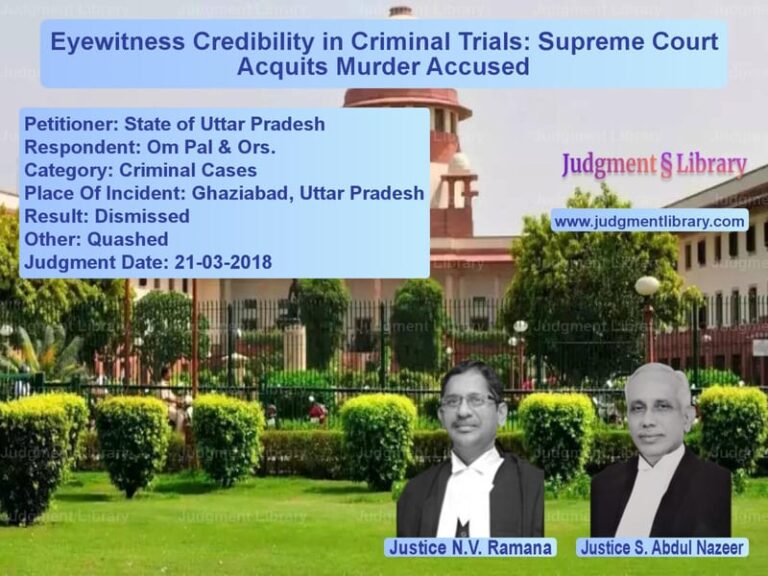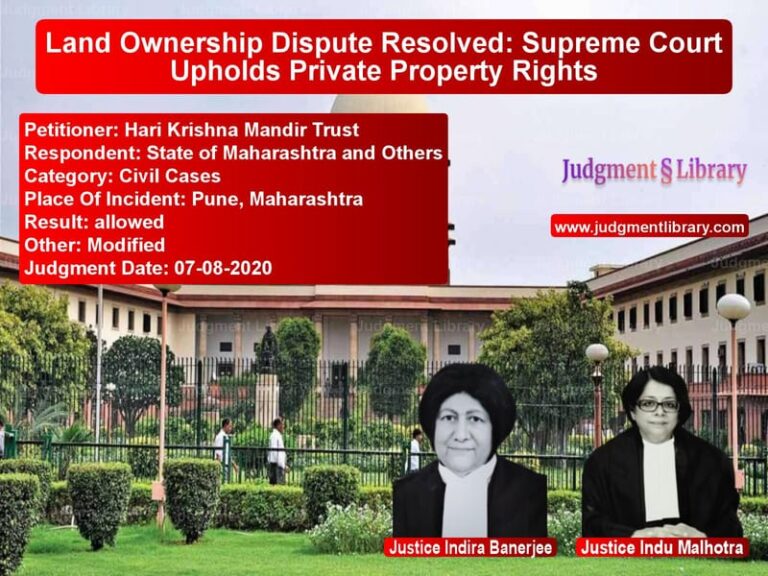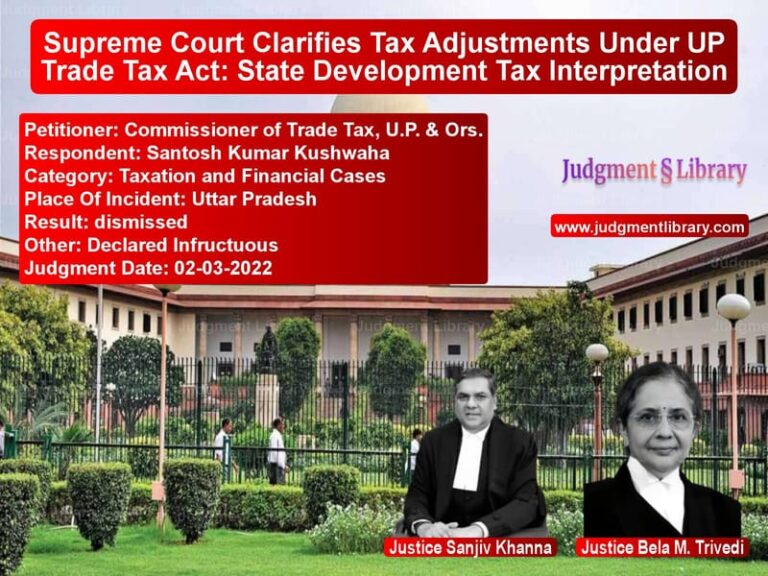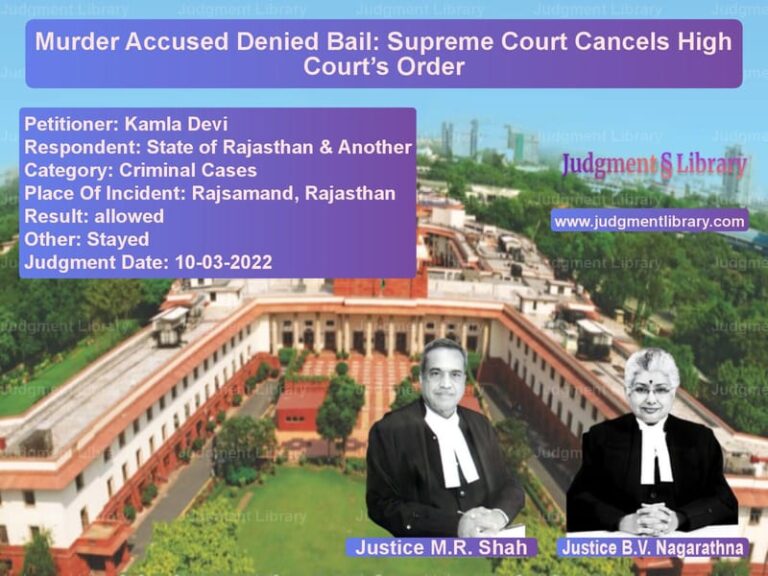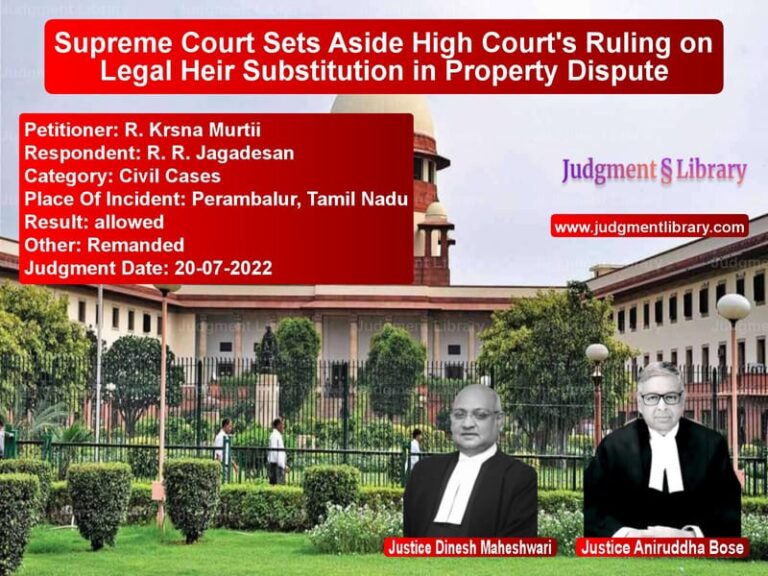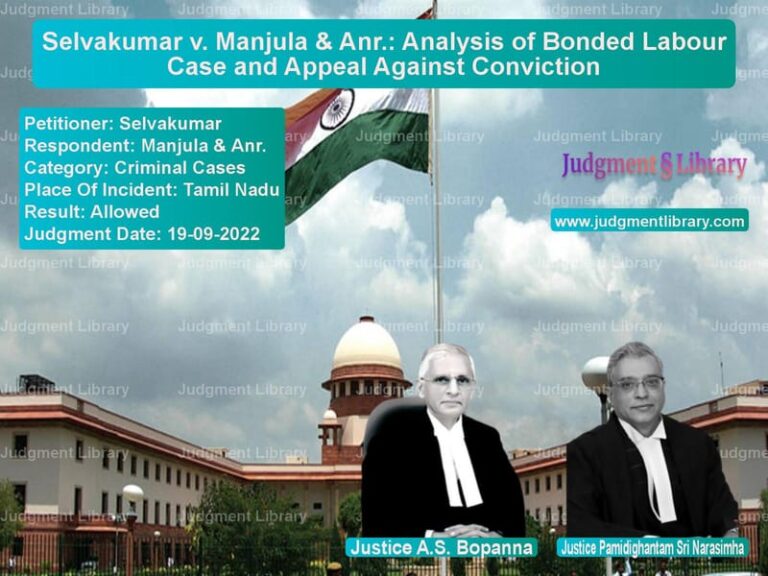Supreme Court Reverses Calcutta High Court’s Ruling in UAPA Case: Jurisdictional Clarity Established
The case of The State of West Bengal vs. Jayeeta Das brings forth crucial questions on the jurisdiction of courts handling cases under the Unlawful Activities (Prevention) Act, 1967 (UAPA). The Supreme Court examined whether the addition of UAPA charges by the Chief Judge of the City Sessions Court, Calcutta, was legally valid and whether the subsequent extension of detention under UAPA was within the law.
The dispute arose after the discovery of Maoist literature in an abandoned bag in Kolkata, leading to an FIR under various sections of the Indian Penal Code (IPC). The respondent, Jayeeta Das, was later arrested, and the investigating officer sought to include UAPA charges. The Calcutta High Court had quashed these additions, ruling that only a Special Court under the National Investigation Agency (NIA) Act could handle UAPA offenses. The Supreme Court overturned this decision, reaffirming the Sessions Court’s authority in the absence of a state-designated Special Court.
Background of the Case
On December 28, 2021, an abandoned black backpack containing CPI (Maoist) literature and other incriminating materials was recovered near Sahid Minar, Kolkata. Following this, an FIR (No. 01 of 2022) was registered at the STF Police Station, Kolkata, under IPC Sections 121A, 122, 123, 124A, and 120B, relating to conspiracy against the state and sedition.
On March 29, 2022, the respondent, Jayeeta Das, was arrested and presented before the Chief Metropolitan Magistrate the next day. During the investigation, the police sought to add offenses under UAPA Sections 16, 18, 18B, 20, 38, and 39. The Chief Judge of the City Sessions Court, Calcutta, allowed this on April 7, 2022.
Subsequently, on September 22, 2022, the Chief Judge extended the respondent’s detention up to 180 days under UAPA’s special provisions. In response, the respondent filed a petition in the Calcutta High Court to quash the UAPA charges, which the court accepted on May 11, 2023.
Key Legal Issues
- Whether the City Sessions Court, Calcutta, had jurisdiction to allow the inclusion of UAPA charges.
- Whether the detention extension beyond 90 days was legally permissible.
- Whether a Special Court, as mandated by the NIA Act, was required to handle UAPA cases.
Arguments by the Appellant (State of West Bengal)
The appellant, represented by senior counsel, contended:
“The investigation was conducted by the state police and not the National Investigation Agency (NIA). Therefore, the case falls under Section 22 of the NIA Act, which allows the Sessions Court to handle UAPA matters if a Special Court has not been designated by the state.”
The appellant further argued that the Chief Metropolitan Magistrate had jurisdiction over remand, but conceded that extending detention beyond 90 days required authorization from the Sessions Court.
Arguments by the Respondent
The respondent’s counsel countered:
“A Special Court was already constituted for UAPA cases in West Bengal via a Gazette Notification dated April 29, 2011. Hence, any action by the Chief Judge or Chief Metropolitan Magistrate was illegal and without jurisdiction.”
The respondent also emphasized that once UAPA charges were added, the Magistrate lost the power to remand the accused beyond 30 days.
Supreme Court’s Analysis
The Supreme Court examined the provisions of the NIA Act, particularly Section 22, which states:
“Until a Special Court is designated by the State Government, the jurisdiction shall be exercised by the Court of Sessions in the division where the offense occurred.”
Based on this, the Court ruled that in the absence of a state-designated Special Court under Section 22 of the NIA Act, the City Sessions Court was within its rights to handle the case.
The Court further analyzed the role of Magistrates in UAPA cases, emphasizing:
“The Chief Metropolitan Magistrate could authorize detention for up to 90 days, but further extension under UAPA required explicit approval from the Sessions Court.”
Final Judgment
The Supreme Court overturned the Calcutta High Court’s ruling and reinstated the Sessions Court’s jurisdiction over the case. The Court concluded:
“The City Sessions Court had the authority to allow UAPA charges in the absence of a state-designated Special Court. The extension of detention beyond 90 days, although irregular, does not invalidate the case since the respondent did not claim default bail.”
Judgment Date: April 18, 2024
Judges: B.R. Gavai, Sandeep Mehta
Petitioner Name: The State of West Bengal.Respondent Name: Jayeeta Das.Judgment By: Justice B.R. Gavai, Justice Sandeep Mehta.Place Of Incident: Kolkata, West Bengal.Judgment Date: 18-04-2024.
Don’t miss out on the full details! Download the complete judgment in PDF format below and gain valuable insights instantly!
Download Judgment: the-state-of-west-be-vs-jayeeta-das-supreme-court-of-india-judgment-dated-18-04-2024.pdf
Directly Download Judgment: Directly download this Judgment
See all petitions in Terrorist Activities
See all petitions in Bail and Anticipatory Bail
See all petitions in Custodial Deaths and Police Misconduct
See all petitions in Judgment by B R Gavai
See all petitions in Judgment by Sandeep Mehta
See all petitions in allowed
See all petitions in Remanded
See all petitions in supreme court of India judgments April 2024
See all petitions in 2024 judgments
See all posts in Criminal Cases Category
See all allowed petitions in Criminal Cases Category
See all Dismissed petitions in Criminal Cases Category
See all partially allowed petitions in Criminal Cases Category


